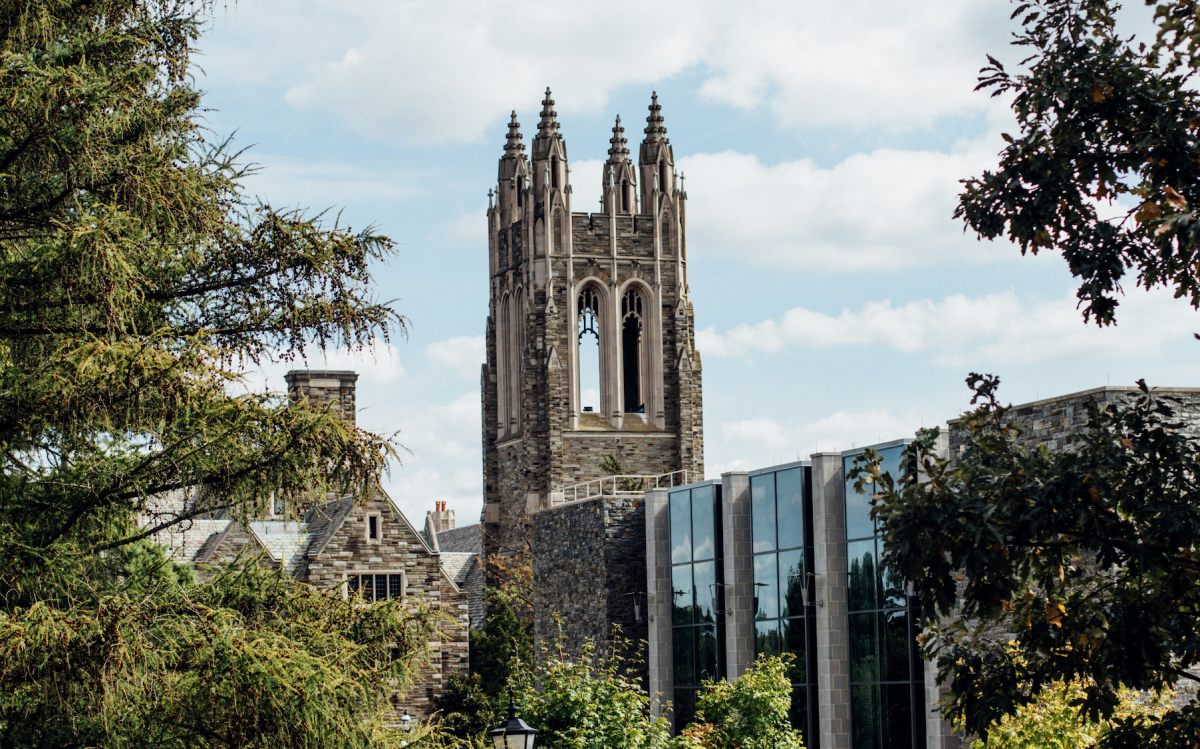St. Joe’s is preparing for the possibility of an outbreak of the novel coronavirus on campus amid 10 presumptive positive cases in Pennsylvania. There are currently no confirmed cases of coronavirus at the university.
As of March 9, the World Health Organization (WHO) reported 109,577 cases of the virus globally, and the U.S. reported 423 cases to the Centers for Disease Control and Prevention (CDC), spanning 35 states. Currently, there are seven presumptive cases in Montgomery County and one in Delaware County, each of which borders Philadelphia.
St. Joe’s students began their week-long spring break on Friday.
“There are currently no plans to cancel classes but preparations are being made to conduct classes online if needed,” Cary Anderson, Ph.D., associate provost and vice president of Student Life wrote in an email to The Hawk on March 7.
Anderson and Cheryl McConnell, Ph.D., provost and vice president for Academic Affairs, issued an announcement to students, faculty and staff on March 9 detailing recommendations and contingency plans for university operations should the need for them arise.
In the email to the university community, Anderson and McConnell said the Office of Information Technology is offering training on Canvas and Zoom, a video conferencing program that allows for multiple participants, audio and video sharing and recording, for faculty and staff during the break. Faculty members are required to submit an instructional continuity plan to department chairs by March 16 to accommodate students who are self-isolating or for “longer term disruptions.”
Princeton University, Fordham University, Columbia University, among others are transitioning to virtual instruction to prevent the spread of the coronavirus. The University of Pennsylvania canceled all large on-campus events, including their admitted students days.
The March 9 email to students, faculty and staff noted the challenges of social distancing in a university environment, especially in residence halls. The Student Health Center and the Office of Human Resources advised: “Anyone who has a chronic health condition, is immunocompromised, or on medication that may weaken the immune system, consider limiting time on-campus until further notice.”
Individuals with serious chronic medical conditions are at higher risk of serious illness from COVID-19, according to the CDC.
The CDC lists symptoms of COVID-19 on their website, including fever, shortness of breath or a cough that may appear between two and 14 days after exposure.
The March 9 email to the university community details action steps in the event of possible exposure. Potentially exposed students and employees are advised to stay off campus and complete a COVID-19 Absence from Campus form, after which they will receive further communication on next steps. Students who may have come in contact with the virus over spring break are advised to monitor their temperature twice daily and report symptoms to their local health department or health provider.
Currently, all university sponsored travel must be approved by the dean or vice president, Anderson wrote in the email to the university community. Students studying abroad in countries where the CDC issued Level 2 or 3 Travel Advisories were required to return home and self-isolate, and university-sponsored travel to these areas is suspended through the end of the semester, according to a March 4 university announcement.
“With presumptive positive cases now present in the Philadelphia area, it’s important to note that anyone could have come in contact with the virus,” Anderson wrote in an email to The Hawk. “We’re thinking through these issues and may change our approach if we feel that the risk to our community has increased.”
The Hawk will provide updates on the coronavirus as the situation progresses. Updates from St. Joe’s can be found at sju.edu/coronavirus.
Luke Malanga ’20 contributed to this story.



















































